Appreciating 'Local and Quality'
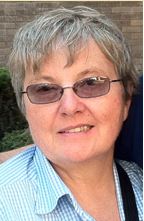


The new partner is Dianne Russell Condon, who has lived in Rockville Centre for more than 18 years and is an active member of the community. She worked in the advertising and marketing departments at Barnes & Noble for more than 10 years, then worked in sales and marketing at Random House. She is the author of Jackie's Treasures and has edited several books from concept to creation. She is also a certified yoga instructor, currently teaching at Adelphi University.
To hear more--and donate--click here.
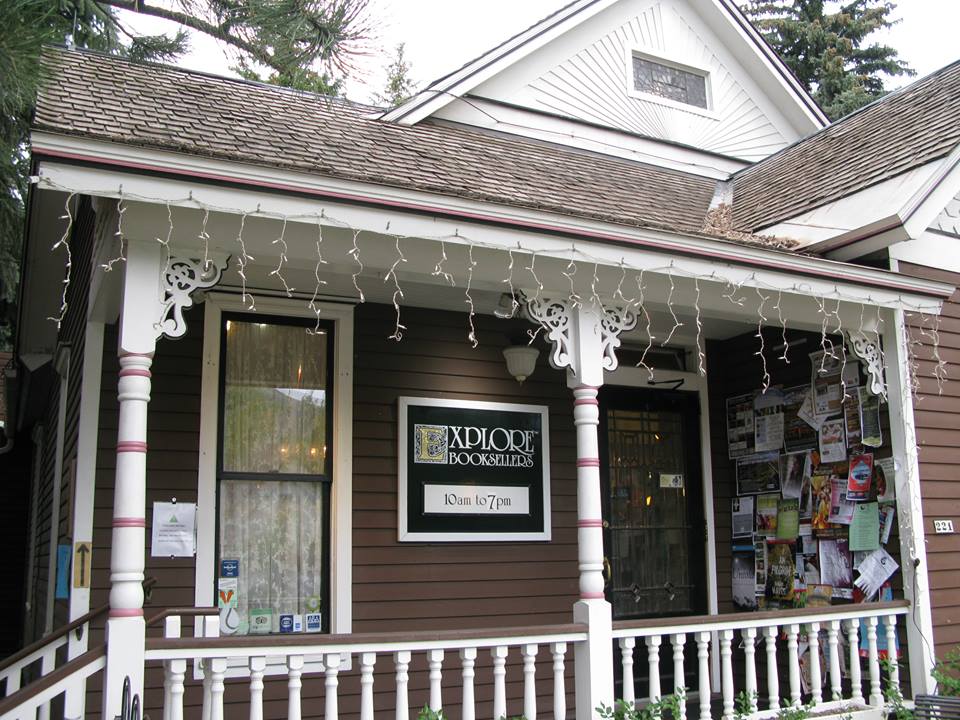 Former Aspen mayor Bill Stirling said the steering committee for a group working to purchase and preserve Explore Booksellers, Aspen, Colo., "aims to engage residents throughout the Roaring Fork Valley in a fundraising effort," the Aspen Times reported. Stirling was married to Explore founder and longtime operator Katherine Thalberg, who died in 2006.
Former Aspen mayor Bill Stirling said the steering committee for a group working to purchase and preserve Explore Booksellers, Aspen, Colo., "aims to engage residents throughout the Roaring Fork Valley in a fundraising effort," the Aspen Times reported. Stirling was married to Explore founder and longtime operator Katherine Thalberg, who died in 2006.
Owners Sam and Cheryl Wyly, who bought the store and its building in 2007, are asking $5.2 million.
The steering committee "believes it's important to make it a grassroots effort that engages people of all means," the Times noted.
"A town like Aspen without a bookstore is like a town without the Aspen Institute, almost," Stirling said, adding that the idea of preserving Explore but moving the bookstore to a different location has been rejected for several reasons, including the fact that it would diminish the Explore legacy. "Katherine Thalberg created something special," he observed.
"We have opened our doors!! We will be open today for business until 6:30 pm tonight. Stop by and check out our new space!" St. Mark's Bookshop posted on its Facebook page Saturday. On Twitter, the bookseller featured a photo of the front window's book display in the new location at 136 East 3rd St.
Quel dommage. Maison de la Presse Internationale, the last French-language bookstore in Toronto, is closing, according to the Torontoist.
 |
|
| photo: Annie Poulin/ICI Radio | |
The store, which features French-language books and international magazines and newspapers, is in Yorkville, which longtime manager Cathy Ola said has changed. "I used to love it," she said. "We'd be open until 11, 12 at night. Now, it's not that busy anymore, especially since the Film Festival is gone, and the Four Seasons has moved." She added that "the people who live in condos... don't shop."
There are Maison de la Presse Internationale shops in Ottawa, Montreal and Quebec City.
Tomorrow Hachette Book Group is releasing two digital summer reading samplers, one focused on fiction and the other on nonfiction. The samplers are being made available free to consumers through a variety of retailers as well as NetGalley, Scribd and Medium.

Making their debut this year, the summer samplers have nothing to do with the dispute with Amazon, a Hachette spokesperson said. Instead, they are "just a way to spread the word about great summer reads."

Or as the Huffington Post put it: "Amazon Wants You to Pay $120 for a Glorified Library Card."
Amazon Unlimited offers, the company said, more than 600,000 e-book titles and several thousand audiobooks.
Australian author Liam Davison and his wife, Frankie, were on the Malaysia Airlines plane that was shot down over eastern Ukraine last Thursday. The Age reported that "two of Mr. Davison's books, Soundings and The White Woman, were shortlisted for the Victorian Premier's Award and the Age Book of the Year Award. Soundings won a National Book Council Banjo Award for Fiction in 1993."
---
Pulitzer Prize-winning biographer and political scientist James MacGregor Burns, "who wrote voluminously about the nature of leadership in general and the presidency in particular," died last week, the New York Times reported. He was 95. Burns wrote more than 20 books, including Roosevelt: The Soldier of Freedom (1970), which was awarded both the Pulitzer and the National Book Award.
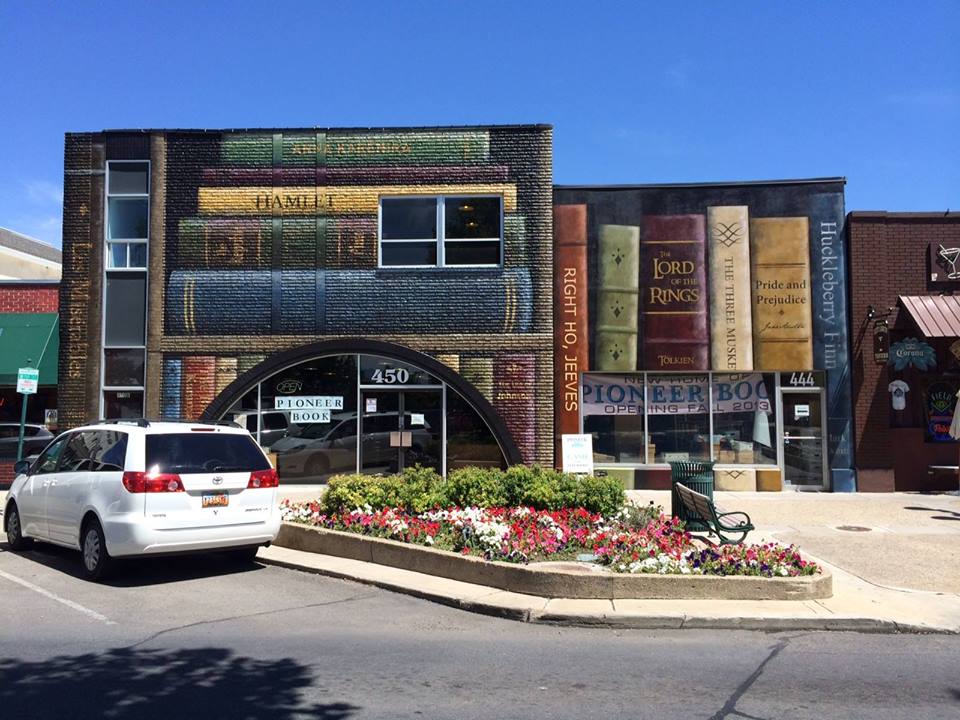 Last week, Pioneer Book in Provo, Utah, unveiled its stunning new façade. Artist Alicyn White and her team took less than a week to transform the storefront into this giant bookshelf, based on an idea from bookstore owner Rick Horsley and manager Travis Patten. Patten selected the titles to be featured on the façade: "They are books I've read that have a broad appeal, or should have," he told the Daily Herald. "I saw this idea on a library in Kansas City. The idea is also on a bookstore in the Ukraine." Pioneer Book reopened last November after a three-year absence and sells both new and used books.
Last week, Pioneer Book in Provo, Utah, unveiled its stunning new façade. Artist Alicyn White and her team took less than a week to transform the storefront into this giant bookshelf, based on an idea from bookstore owner Rick Horsley and manager Travis Patten. Patten selected the titles to be featured on the façade: "They are books I've read that have a broad appeal, or should have," he told the Daily Herald. "I saw this idea on a library in Kansas City. The idea is also on a bookstore in the Ukraine." Pioneer Book reopened last November after a three-year absence and sells both new and used books.
Melanie Hicks opened Coffee Beans & Books, Beaver, West Va., four years ago, "partly because of her love for books, but also because there was no bookstore in the Beckley area," the Register-Herald reported in its profile of the indie bookshop located at the School of Harmony.
"I've always had a passion for reading," said Hicks. "I moved my paralegal office downstairs (in the building before opening the bookstore) and the shelves were here, and it just kind of kept calling to me. At that time, we didn't have any bookstores, so it was just something I felt necessary for our community and something I had a passion for."
She described her shop as "a book readers haven, to escape from the world. Because we're not on the beaten path, we can come in here and kind of leave the world out beyond the walls, and I think its a place that you can discuss books and ideas and enjoy family time, enjoy friendships, meet people just to visit.... The people that find us love us. We have a very loyal customer base and some very staunch local supporters, and I hear time and again how inviting and cozy the atmosphere is, so that makes me feel good."
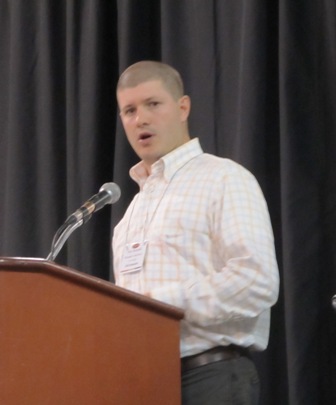 |
|
| Hans Weyandt | |
As part of Coffee House Press's new In the Stacks program, which has placed writers and artists into library residencies at Twin Cities cultural institutions, and the Hennepin County Library's Writers in the Library series, Hans Weyandt, writer, editor and former co-owner of Micawber's Books in St. Paul, is doing a month-long residency in the library's special collections area, focusing on the History of Books and Printing Collection. Weyandt will collaborate with the curator to survey the collection, which includes historic fine press books as well as work from current local and national book artists.
"I strongly believe that the public library system, along with our public parks and lands, are one of the few remaining places where all of us have an equal standing and level of ownership," Weyandt said. "I don't know what this residency will bring, but I am excited for it." Weyandt currently works at Sea Salt Eatery, Moon Palace Books and Big Bell Ice Cream. He also is handling publicity for Ben Weaver's fall record release (I Would Rather Be a Buffalo) and bike tour from Minnesota to Louisiana.
A presentation and author talk will take place on Thursday, September 18, at the central library in Minneapolis. Dispatches from this and other library residencies are available at chpinthestacks.tumblr.com and #chpinthestacks.
Effective August 1, Jerry Bilek is joining the Minnesota Historical Society Press as sales manager. He is the owner of the Monkey See, Monkey Read bookstore in Northfield, Minn., which he founded in 2006 and put up for sale in June. A bookseller for 22 years, he was a buyer at the St. Olaf bookstore and a bookseller at Borders before opening Monkey See, Monkey Read, which has been profitable every year.
---
Effective today, Penny Makras is joining Harper as a senior marketing manager. She formerly worked in the marketing department at Wiley and earlier held positions in special sales at Amacom and in publicity at St. Martin's Press.
Effective immediately, Midpoint Trade Books is now distributing in the U.S. Influence Publishing, a hybrid publisher with headquarters in North Vancouver, B.C., that focuses on "inspiring books that influence change." Titles include What Patients Don't Say if Doctors Don't Ask by Dr. Manon Bolliger and Lost Decency by Atta Arghandiwal. Forthcoming titles include Conversations with a Rattlesnake by former NHL hockey player Theo Fleury and therapist Kim Barthel and Baby Comes Home by Dr. Paul Roumeliotis, an expert in childhood health.

Today on Fresh Air: Chris Tomlinson, author of Tomlinson Hill: The Remarkable Story of Two Families Who Share the Tomlinson Name--One White, One Black (Thomas Dunne Books, $26.99, 9781250005472).
---
Today on the Queen Latifah Show: Annabelle Gurwitch, author of I See You Made an Effort: Compliments, Indignities, and Survival Stories from the Edge of 50 (Blue Rider, $25.95, 9780399166181).
---
Today on Dr. Oz: Pam Oslie, author of Life Colors: What the Colors in Your Aura Reveal (New World Library, $17.95, 9781577311690).
---
Today on the Talk: Chris Colfer, author of The Land of Stories: The Enchantress Returns (Little, Brown, $8, 9780316201551).
---
Tomorrow on Katie: Wendy Sue Swanson, author of Mama Doc Medicine: Finding Calm and Confidence in Parenting, Child Health, and Work-Life Balance (American Academy of Pediatrics, $16.95, 9781581108378).
---
Tomorrow on Tavis Smiley: Max Brooks, author of Max Brooks' The Extinction Parade Volume 1 (Avatar Press, $19.99, 9781592912346).
---
Tomorrow on Jimmy Kimmel Live: Todd Glass, co-author of The Todd Glass Situation: A Bunch of Lies About My Personal Life and a Bunch of True Stories About My 30-Year Career in Stand-Up Comedy (Simon & Schuster, $25, 9781476714417).
Ben Whishaw (The Hour) will replace Colin Firth as the voice of Paddington Bear in a live action/CG movie about the popular, "furry London-dwelling protagonist" from Michael Bond's beloved children's book series, Deadline.com reported. The voice cast also includes Nicole Kidman, Jim Broadbent, Peter Capaldi and Sally Hawkins. Firth had been "set to play the CG bear for producer David Heyman and helmer Paul King before his voice was deemed not quite right for the character," Deadline.com wrote.
---
Sony Pictures has acquired the book Tupperware Unsealed: Brownie Wise, Earl Tupper and the Home Party Pioneers for Sandra Bullock to star in and for Tate Taylor to adapt, produce and direct, Deadline.com reported.
Belinda Bauer won the £3,000 (about US$5,125) Theakstons Old Peculier Crime Novel of the Year award for Rubbernecker, the Bookseller reported. Lynda La Plante was named the fifth winner of the Theakstons Old Peculier Oustanding Contribution to Crime Fiction award, joining previous honorees Ruth Rendell, P.D. James, Colin Dexter and Reginald Hill.
In a Rocket Made of Ice: Among the Children of Wat Opot by Gail Gutradt (Knopf, $25.95 hardcover, 9780385353472, August 12, 2014)
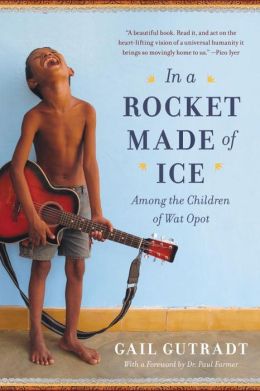
It would be easy for vignettes about helpless young victims of Cambodia's AIDS epidemic to read like maudlin door-to-door missionary handouts, especially when they're accompanied by photos of smiling young faces and orderly schoolrooms. Gutradt's memoir, however, is neither sentimental nor solicitous. In the early years before economical antiretroviral drugs were brought to the country by Doctors Without Borders, more children wound up in the Wat Opot crematorium than survived to be educated and independent. Matthysse lost funding from a United States church because his community was insufficiently evangelical and allowed children to attend the Buddhist monastery next door. Surrounded by competing "orphanages" operating as scam businesses, Wat Opot had to show donors that their support was efficiently going to treat, feed and educate these children.
In a digression to recount Matthysse's own troubled personal journey through post-war wandering, she admits that the Cambodian community he founded works well partly because he is not only a stern and compassionate father to the children but also something of a benevolent despot. Yet Gutradt also admires his simple philosophy of success: "Just start where you are, and do what you can, and don't let yourself be paralyzed by the naysayers."
During the time between her four extended visits to Wat Opot, Gutradt was diagnosed with breast cancer. Suffering through her treatments, she came to appreciate even more the strength of the children she cared for. When feeling self-doubt and asking herself what someone who traveled between two very different worlds could offer, she finally concludes "it is the mere act of returning here that has made a difference, that has let them know that I care." Sometimes true philanthropy consists of just being there--again and again. --Bruce Jacobs, founding partner, Watermark Books & Cafe, Wichita, Kan.
Shelf Talker: Neither sentimental nor solicitous, Gutradt's memoir of her work in a small Cambodian community for orphans afflicted with AIDS is a compassionate window into both their lives and hers.